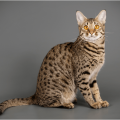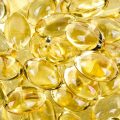Table of Contents
A fun-loving, designer pooches. Yorkie poo is a cross between the Yorkshire Terrier, together with a toy or miniature Poodle. These dogs are intelligent, affectionate, friendly, and gentle, making them delightful and endearing companions. There also won’t be a dull moment living with a Yorkie poo; as they have a lot of energy to run fast; jump high and essentially bond and have fun well with you. While owning one of these, it is your sole responsibility to keep them at their healthiest state. Thus, awareness of the most common concerns Yorkie poo health face is an integral part of fulfilling this responsibility; so we’ll know if there is special health care in need of fulfillment.
For this reason; keep on reading as we have listed the most probable and at-risk Yorkie poo health concerns; and all the preventive measures fur parents can embark on . Let’s get started.
Common Yorkie Poo Health Issues
Yorkie poos are essentially healthy, but like all dog breeds, they also hold risk to certain health conditions. It is important to know that not all Yorkie poos will get any, or rather all; of these diseases; but it is crucial that you are aware.
Epilepsy
Epilepsy is a neurological challenge that is often, but not at all, inherited. It causes mild or severe seizures that may manifest themselves as unusual behavior, including running frantically as if being chased; hiding as well as staggering. It can also be falling down, rims rigid, and unconscious. Seizures are frightening to witness, but fortunately, the long-term prognosis for dogs with this is very good.
For prevention, one good way is lessening stress and limiting changes to your dog’s environment; as stress is known as the number one trigger to seizures. Healthy diet and keeping an eye on your pooch’s blood sugar will also contribute to preventing epilepsy. For medication, Potassium Bromide is a very effective first line treatment.
Patellar Luxation
Patellar Luxation, or called too as slipped stifles, is a usual problem in small breeds. The patella being the kneecap, and luxation being dislocation of an anatomical part (bone at a joint). This condition, then; is when the knee joint slides in and out of place, which paves the way for causing the dog to be in distress and pain. This condition can be crippling, however, thankfully many dogs are able to lead relatively normal lives amidst having this.
One of the easiest ways in keeping this condition at bat is maintaining the ideal weight corresponding to your Yorkie poos breed. Feeding your dog a specially curated raw food diet; is recommended as it ensures they are getting all the nutrients vital for their optimum health state; and keeps all the vitamin intake maintained. It supports healthy weight maintenance as well.
Portosystemic Shunt
Portosystemic Shunt (PSS) is a condition of abnormal blood flow residing between the liver and the body. This is a concern as livers are responsible for detoxifying our blood, metabolizing nutrients and handling elimination of drugs. Signs of this are neurobehavioral abnormalities, absence of appetite, drug intolerance, stunted growth; low blood sugar, intermittent gastrointestinal challenges; as well as urinary tract problems. Corrective surgery is PSS long term management.
For preventive measures; unfortunately it is caused by birth defects, and a cirrhosis disease is also a pathway for PSS to manifest. To keep the liver healthy; your dog must be on a diet where nutrients and calories essential for liver health are met. Dogs with liver diseases significantly pleasingly on low-protein high-fat diets considering many sources of healthful Omega 3 fats.
Legg-Calve-Perthes Disease
Legg-Calve-Perthes Disease is a health concern involving the hip joint. If your Yorkie poo has this; the blood supply to the head of the femur is lessened; and the head of the femur that links to the pelvis begins to disintegrate. Signs include limping and atrophy of the leg muscle. Surgery is often adhered to this condition, and successfully results in a pain-free canine.
Keeping your dog lean by a proper wholesome diet and exercises are both great preventive tactics; so there will not be an excess weight; that will put too much strain on the joint. High impact activity such as excessive jumping and running keeps this health concern at bay.
Hypothyroidism
Hypothyroidism is a disorder residing in the thyroid gland. It is a master cause for holding responsibility in conditions such as alopecia, obesity, lethargy, pyoderma, hyperpigmentation; and other skin conditions. It is frequently approached with diet and medication.
Hypothyroidism cannot be prevented, but fortunately, it is not a life-threatening disease. It is also inexpensive to manage. Dogs manifesting this health issue will be treated for life with a thyroid hormone replacement therapy. Fresh vegetables are fur parents’ best friend; as numerous of them (asparagus, beets, broccoli, brussels sprouts, carrots, celery, lettuce as well as mushroom greatly support and enhance thyroid function.
Atopic Dermatitis
Lastly, Atopic Dermatitis is an inherited skin disease that makes dogs predisposed to developing certain allergic symptoms; as a result of following repeated exposure to some otherwise harmless substance. Dogs with this health concern are typically allergic to dust mites; and pollen and often show up licking, chewing, biting; and scratching parts of their body. The irritation causes hair loss, redness alongside thickening of the skin. The treatment measures revolve around removing allergens as much as possible and supervising antihistamines and steroids. Hypoallergenic shampoos also greatly improve this condition.
This also cannot be approached with the prevention; but this condition becomes worse if your dog is stressed, if it sweats frequently, if it is obese, and if it uses poor soaps and detergent. Using petroleum jelly on your dog’s skin greatly helps, as it mitigates the development of present skin issues.
Conclusion
There is no perfect breed of dog, and whether your pooch is healthy, you are to love them wholly and take care of them not in any way less. We hope you find enlightenment on our discussion, about Yorkie poos’ health concerns and consider, sharing this with those dog parents who might be in need of awareness!





 Author and long-time animal lover. Sharing knowledge on pet care through experience and the written word.
Author and long-time animal lover. Sharing knowledge on pet care through experience and the written word.